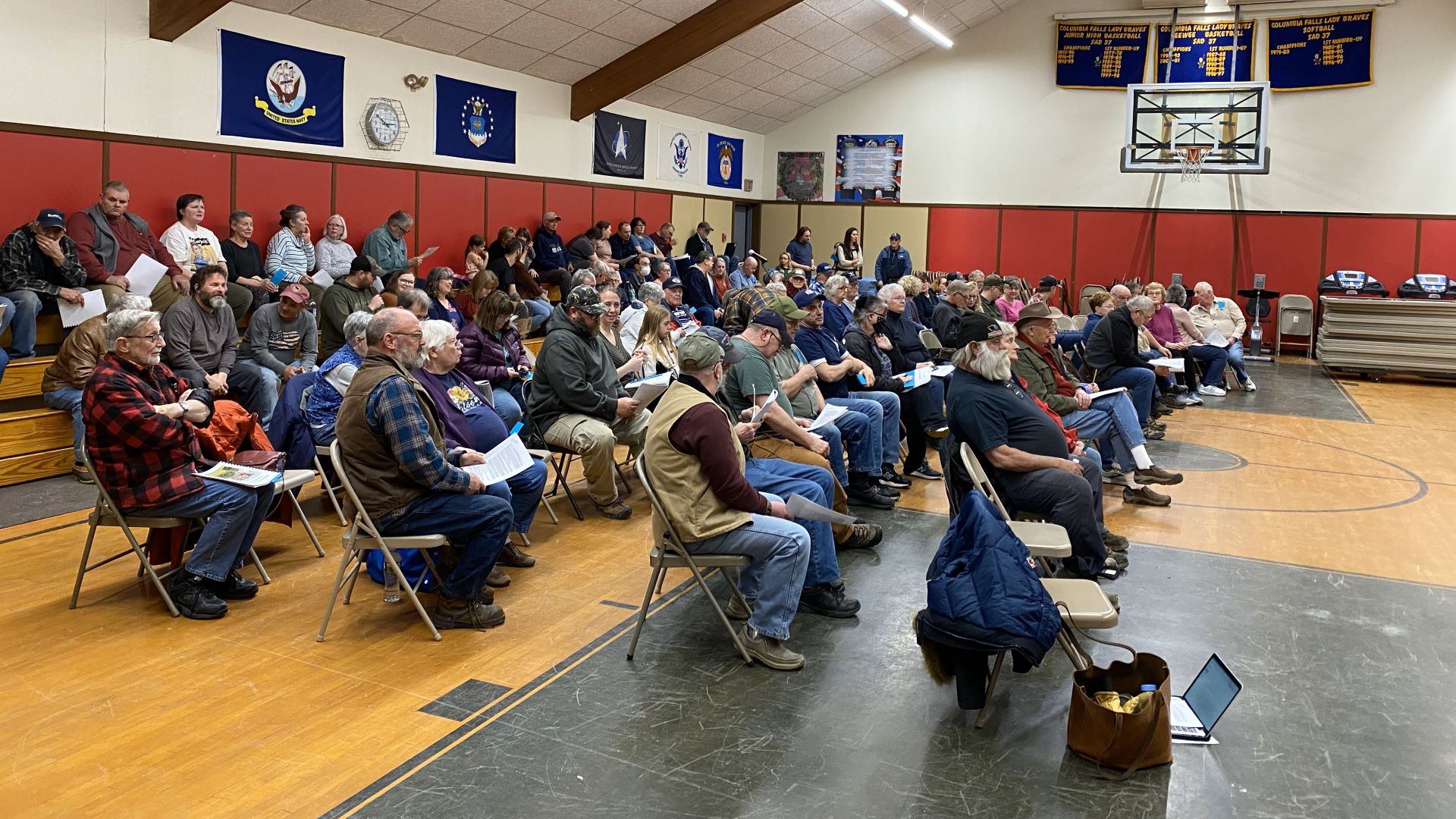Residents of Columbia Falls on Tuesday night overwhelmingly approved a six-month ban on large-scale commercial development, a measure that will likely slow plans by the family behind Wreaths Across America to build a 2,500 acre, $1-billion patriotic theme park in the woods north of town.
Eighty ballots were cast, with 63 in favor of the moratorium and 17 against. Enacting the measure buys town officials time to weigh the economic boon the park might provide against the disruptions it could bring to the quiet, scenic village, which has around 500 residents and little in the way of regulations or infrastructure.
Despite controversy over the project, which the Worcester family has dubbed “Flagpole of Freedom,” there was little fanfare at Tuesday’s annual meeting, with no comments on the moratorium and just one question, about what type of development would be prohibited.
The vote’s outcome was roughly in line with a recent survey of those in the region, in which more than 80% said they favored a pause on large-scale commercial development, with many calling out the flagpole project by name.
“We really are just beginning our efforts here. There is much to be done,” said Selectman Jeff Greene in an email after the meeting. “It was great to see the number of citizens who participated. Our town meeting is an exercise of local control, the most fundamental form of government, the importance of which I cannot overstate.”
The temporary ban is likely to slow the flagpole project but does not stop it. Much of the land where the park would be built sits on unorganized territory and falls under the purview of the state Land Use Planning Commission. The Worcesters want Columbia Falls to annex it, which would speed up permitting and ensure taxes from the park go to the town.
The family has suggested they would build the park with or without the town’s backing, but momentum behind the plans has slowed in recent months, and co-founder Mike Worcester said in a statement last week that the family was returning money it had received from supporters to kickstart construction.
A fundraising page on the project’s website is no longer functional. The family has been largely silent in recent months, and did not appear to be present at the meeting on Tuesday.
“Although it may end up delaying our progress with Flagpole of Freedom, we support the town in protecting itself from unrestricted growth,” Mike Worcester said in a statement last week. “This goes for our project or any other projects entering the area.”

Plans for the Flagpole of Freedom park have generated considerable controversy since they were made public about a year ago. Some residents have said they would welcome the promised economic development to a region that has long struggled to attract investment.
The Worcester family has said it will create 5,000 year-round jobs, making it one of the state’s largest employers, and attract 6 million annual visitors to the flagpole and its surrounding attractions, which would include theaters, restaurants, a hotel, stores, hiking trails, museum exhibits, gondola lines and educational attractions.
Others say the plans would destroy the character of the town, obstructing views and disrupting what one resident called the “small hometown feel” and “natural beauty” that drew them to the area, in one of Maine’s most rural counties.
Attorney Aga Dixon, which the town has hired to review the plans, said the Downeast region is being increasingly targeted for large development — recent proposals have included fish farms, RV parks, solar and wind farms and even rocket launching — that have challenged small-town officials.
“It’s a bit of a wake-up call for these small communities.”
Sign up here to receive The Maine Monitor’s free newsletter, Downeast Monitor, that focuses on Washington County news.
Kate Cough reports on the environment for The Maine Monitor. Reach her by email with other story ideas: gro.r1751417333otino1751417333menia1751417333meht@1751417333etak1751417333.








